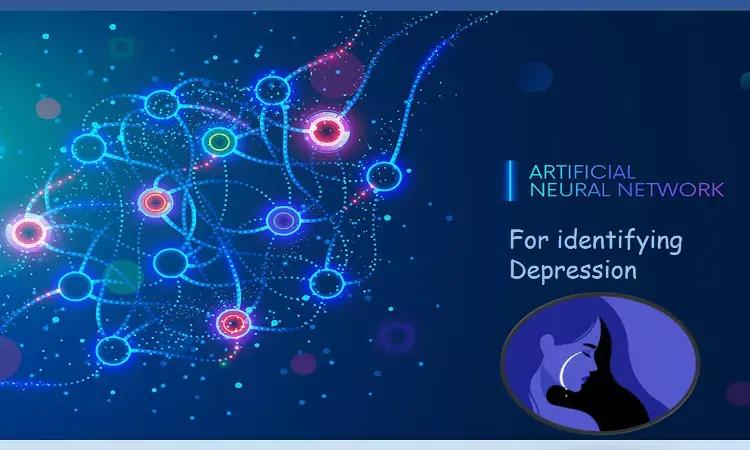Artificial Neural Networks Can Help In Early Detection Of Adolescent Depression, BMC Study.
- byDoctor News Daily Team
- 20 July, 2025
- 0 Comments
- 0 Mins

Identifying important factors contributing to depression is necessary for interrupting risk pathways to minimize adolescent depression. A recent study by Fang-Fang Zhao published in BMC psychiatry aimed to assess the prevalence of depression in high school students and developed a model for identifying risk of depression among adolescents. The authors have found that artificial neural networks (ANN) showed good performance in identifying risk of depression. Promoting the protective factors and reducing the level of risk factors may facilitate preventing and relieving depression in adolescents.
Depression is a leading cause of disability of adolescents worldwide and accounts for global burden of disease. Lifetime prevalence of depression has been reported as 20% in teenagers at late adolescence. Although studies have tended to focus on correlation of some risk factors and protective factors with depression separately, the key important factors in analyzing these factors at the same time remain poorly understood.
The current study aimed to identify the key factors from demographics, individual factors and environmental factors that may contribute to the depression of students and detect the pattern of depressive students.
In this cross-sectional study, a total of 1190 adolescents were recruited. Various scales were used such as Multidimensional scale of perceived social support (MSPSS), Adolescent self-rating negative life events checklist, Perceived stress scale (PSS), 10-item Connor-Davidson resilience scale, Generalized self-efficacy scale, Neff's self-compassion scale (short-form), Five facet mindfulness questionnaire (FFMQ), 10- item personality measure, Life orientation test (LOT), Patient health questionnaire (PHQ). Artificial neural network (ANN) was used to establish the identification model.
It was found that the prevalence of depression was 29.9% among the students. The model showed the top five protective and risk factors including perceived stress, life events, optimism, self-compassion and resilience. ANN model accuracy was 81.06%, with sensitivity 65.3%, specificity 88.4%.
It can be concluded that out of the 17 factors included in analysis, the top 10 ones were perceived stress, life events, optimism, selfcompassion and resilience, having clear goal for future, social support, hobby, anxious response when facing exams, and diet nutrition.
Perceived stress is the most highly influencing factor of depression among high school students in the present study. The ANN model showed better performance in depression identification.
Optimism is an important protective factor of depression among adolescents in the present study. Students with low level of optimism were more likely to have depression.
The present study also showed social support was important in defending against depression. The support sources varied across life periods. Family members are the most important support among children and adolescents, while spouses are the main support among adults and elder adults, followed by family and then friends.
These findings imply that ANN can correctly identify students who are depressed and not depressed. Therefore, ANN is recommended in the study to identify the risk of depression of the students.
Source: BMC Psychiatry: https://doi.org/10.1186/s12888-021-03531-5
Disclaimer: This website is designed for healthcare professionals and serves solely for informational purposes.
The content provided should not be interpreted as medical advice, diagnosis, treatment recommendations, prescriptions, or endorsements of specific medical practices. It is not a replacement for professional medical consultation or the expertise of a licensed healthcare provider.
Given the ever-evolving nature of medical science, we strive to keep our information accurate and up to date. However, we do not guarantee the completeness or accuracy of the content.
If you come across any inconsistencies, please reach out to us at
admin@doctornewsdaily.com.
We do not support or endorse medical opinions, treatments, or recommendations that contradict the advice of qualified healthcare professionals.
By using this website, you agree to our
Terms of Use,
Privacy Policy, and
Advertisement Policy.
For further details, please review our
Full Disclaimer.
Recent News
Silent Heart Attacks Pose Long-Term Health Risks f...
- 06 November, 2025
Long-Term Melatonin Use Associated to Increased He...
- 06 November, 2025
Can Whole-Fat Dairy Reduce Risk of Heart Disease?
- 06 November, 2025
BFUHS notifies on Round 6 BSc Nursing admissions,...
- 06 November, 2025
Daily Newsletter
Get all the top stories from Blogs to keep track.


0 Comments
Post a comment
No comments yet. Be the first to comment!